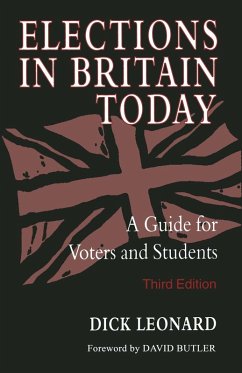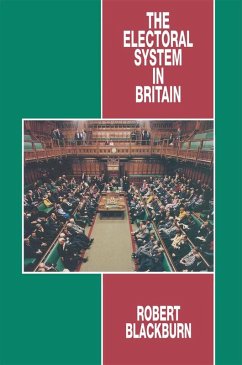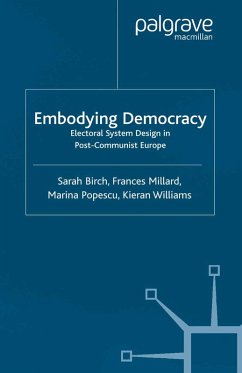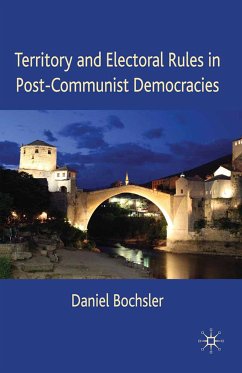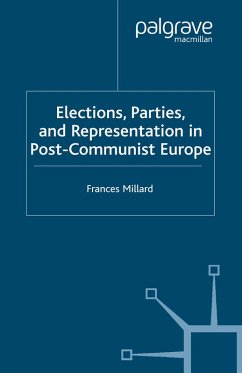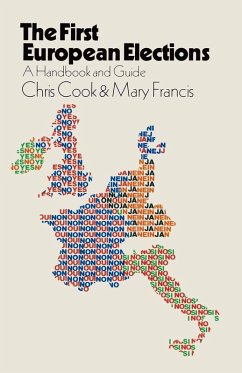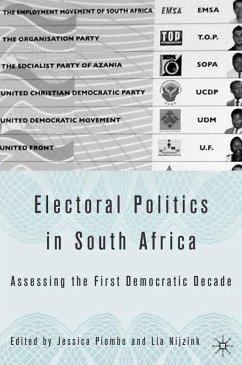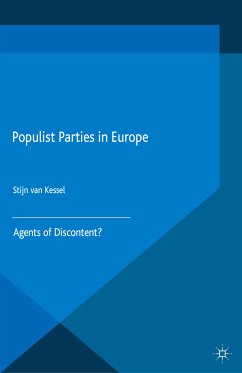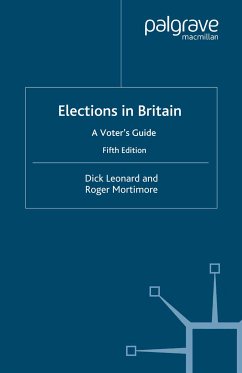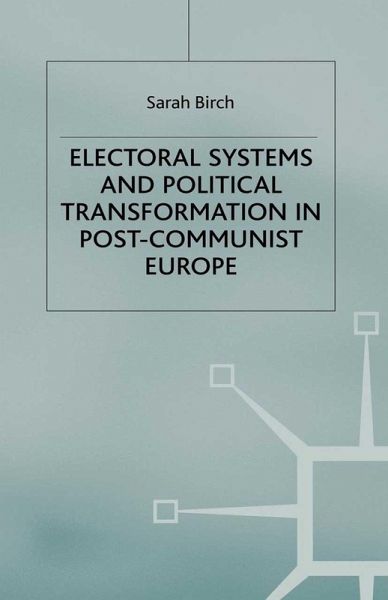
Electoral Systems and Political Transformation in Post-Communist Europe (eBook, PDF)
Versandkostenfrei!
Sofort per Download lieferbar
40,95 €
inkl. MwSt.
Weitere Ausgaben:

PAYBACK Punkte
20 °P sammeln!
Electoral Systems and Political Transformation in Post-Communist Europe assesses the influence of electoral systems on political change in 20 post-communist European states. The main finding is that electoral institutions have systematic effects on the formation of representative structures. 'Party-enabling' aspects of electoral laws such as list proportional representation tend to foster popular inclusion in politics and institutionalized party systems, whereas 'politician-enabling' rules such as single-member districts and ballots that allow voters to select individuals often favour the deve...
Electoral Systems and Political Transformation in Post-Communist Europe assesses the influence of electoral systems on political change in 20 post-communist European states. The main finding is that electoral institutions have systematic effects on the formation of representative structures. 'Party-enabling' aspects of electoral laws such as list proportional representation tend to foster popular inclusion in politics and institutionalized party systems, whereas 'politician-enabling' rules such as single-member districts and ballots that allow voters to select individuals often favour the development of weakly structured systems and high levels of popular exclusion from the representative process.
Dieser Download kann aus rechtlichen Gründen nur mit Rechnungsadresse in A, B, BG, CY, CZ, D, DK, EW, E, FIN, F, GR, HR, H, IRL, I, LT, L, LR, M, NL, PL, P, R, S, SLO, SK ausgeliefert werden.




